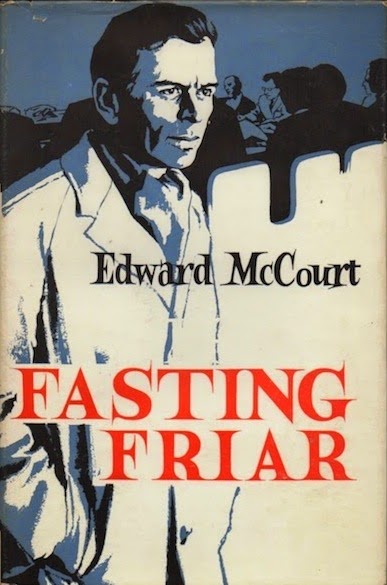Nancy McVeigh of the Monk Road
R. Henry Mainer
Toronto: Briggs, 1906
Robert Henry Mainer served one term as President of the Canadian Authors Association and was at least twice mentioned alongside L.M. Montgomery as a writer of promise.
Nancy McVeigh of the Monk Road is his only book.
At 127 pages, I consider it more novella than novel, all the while wondering just how much of it is fiction. The book's dedication not only implies that Nancy McVeigh was a real person, but that the stories featured actually happened. If true, it might explain why Nancy McVeigh of the Monk Road is so uneventful.
When first we meet the title character, a widowed Irish-Canadian tavern owner, she has begun proving herself an unlikely pillar of her nameless community. The pages that follow see Nancy McVeigh pay a patron's hospital bills, visit a dying man, nurse an injured man and play cupid. In one of the chapters she travels to Chicago in the hopes of seeing her only child, a successful businessman. He's visiting Mexico. She returns home.
Nancy McVeigh of the Monk Road is a banal little book; were it not for its title I might never have picked it up. You see, Nancy McVeigh's story is meant to begin during the "régime of Governor Monk". Her tavern is located on a military road named for the man.
But we never had a Governor Monk. Victoria's representative was Charles Stanley Monck, 4th Viscount Monck. The military road "cut through the virgin pine" described in Nancy McVeigh of the Monk Road is the Monck Road.
Though the 1852 census of Upper Canada contains no record of a Nancy McVeigh, an anonymous Globe review (19 December 1909) suggests that she did exist – "her hostelry seems to have been on the shores of Lake Simcoe". An earlier Mail (7 January 1884) contains reference to a meeting that took place at "Nancy McVeigh's" somewhere in or around the Muskokas. That I don't much care either way probably says something.
I like to think Nancy McVeigh existed. If Mainer's stories are true, she would've been a generous soul. It seems a shame that her trip to Chicago was for naught.
As for Governor Monk, I'm not so sure
Object: A slim hardcover featuring three plates by F.H. Brigden. I bought my copy early this year at Attic Books. Price: $10. It once belonged to Mrs G. Grant of Prescott, Ontario.
Access: An uncommon book, the only copy currently listed online is offered by a Yankee bookseller who asks US$29.75. I saw a very nice copy going for C$20 during my last trip to London.
Print on demand vultures have moved in on this one, though I doubt their efforts have proved lucrative. The most attractive edition, from Dodo Press, stains Brigden's work pink, yellow and blue.
I count twenty copies held in Canadian libraries.
Related post:































